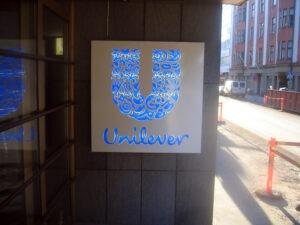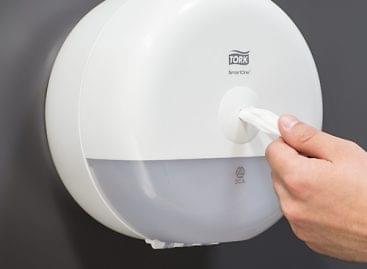Unilever Strikes Climate Deals With Walmart And Others
Unilever has agreed sustainability deals with its top ten retail customers, including Walmart, aimed at cutting greenhouse gas emissions and minimising waste in its supply chain, the consumer giant’s CEO said on Monday.

Unilever, which makes Dove soap, Knorr stock cubes and Ben & Jerry’s ice cream, was – in the wake of the 2015 Paris Agreement on climate change – the consumer industry’s poster child for setting tough sustainability targets.
About two years ago, however, the company came under pressure from some investors concerned that Unilever’s climate strategy was distracting it from growing profits.
Sustainability Goals
In April, CEO Hein Schumacher changed some of the company’s years-old sustainability goals, leading to both praise from some investors and criticism from climate activists.
“What’s new and what’s coming, and what I expect a lot from in the years to come, is [our] collaboration on sustainability agreements with [retail] customers,” Schumacher said in an interview at the Reuters IMPACT conference in London on Monday.
“We have a sustainability collaboration agreement […] with Walmart, for example. […] [The agreement] is about greenhouse gas emission reduction, and we are their Scope 3.”
Scope 3 emissions are those for which a company is indirectly responsible across its supply and distribution chains, according to a classification development by the World Resources Institute, a non-profit think tank. A company’s in-house operations and energy use make up what are called Scope 1 and Scope 2 emissions.
Walmart has noted previously that it was working with suppliers to avoid a ‘gigaton’ of greenhouse gas emissions from the global value chain by 2030. Since it launched the initiative in 2017, suppliers have reported that a total of 574 million metric tonnes of emissions had been reduced or avoided, according to the retailer’s website.
Schumacher said that Unilever also has a deal with health-and-beauty retailer AS Watson to create sustainable products like body wash and toothpaste.
He added that Unilever was using climate-modelling to cut supply chain emissions and make operations more resilient to adverse events like drought.
“[Because of drought] we’ve completely changed our mustard seed supply chain,” Schumacher said. “We’re changing our tomato supply chain, and they do become a bit more resilient.”
ESM
Related news
Bonduelle achieves B Corp™ certification worldwide
🎧 Hallgasd a cikket: Lejátszás Szünet Folytatás Leállítás Nyelv: Auto…
Read more >Related news
No matter how much you save, food and gadgets always take the money
🎧 Hallgasd a cikket: Lejátszás Szünet Folytatás Leállítás Nyelv: Auto…
Read more >Historic price reduction at ALDI
🎧 Hallgasd a cikket: Lejátszás Szünet Folytatás Leállítás Nyelv: Auto…
Read more >






